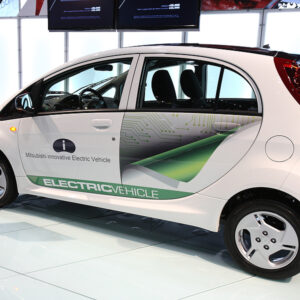More than 90 percent of the U.S. auto industry was shuttered three years ago because of the COVID-19 pandemic. Then, just as American consumers were returning to showroom floors and auto workers were returning to the factories, a prolonged shortage of automotive semiconductor chips emerged, severely handicapping automakers worldwide. Despite these headwinds, Japanese automakers continue to boost the competitive nature of the U.S. auto industry by demonstrating resilience through increased U.S. employment and growing investments in local communities nationwide.
Japanese automakers are among the most significant contributors to the nation’s manufacturing sector and to the U.S. economy. In recent years, the continued growth and economic importance of Japanese automakers have shown they are not just a vital part of the development of the “new” U.S. automobile industry, but they have also become critical contributors to the United States’ overall economy.
According to a new report, Japanese automakers support a record-high 2.29 million American jobs. From production facilities and dealer networks to research and development centers and suppliers, jobs supported by these automakers have grown by 69 percent over the last decade.
This significant growth in U.S.-based jobs — including direct, intermediate and spin-off employment — demonstrates that Japanese automakers play an increasingly larger role in the economic revival of cities and towns across America. With 24 manufacturing plants, 43 R&D and design centers and 69 distribution centers across the country, these facilities provide economic benefits that resonate throughout the surrounding communities.
Japanese automakers also remain among the largest job creators in the United States. In 2022, they directly employed more than 107,000 American workers. Their manufacturing and R&D activities also generated or supported 499,000 intermediate jobs (suppliers of goods and services), with an additional 399,000 spin-off jobs resulting from consumer spending by those in the direct and intermediate positions — totaling more than 1 million jobs.
Japanese automakers new vehicle dealers’ direct and intermediate employment totaled more than 785,000 in 2022, with 372,000 resulting from direct employment and 413,000 from intermediate employment. An additional 503,000 jobs were spun off from the direct and intermediate workers’ consumer spending, totaling more than 1.2 million jobs tied to dealerships. And these jobs are not localized only to areas where Japanese automakers operate manufacturing facilities but truly touch every state and thousands of communities around the country.
Furthermore, Japanese automakers’ manufacturing and support operations and new vehicle dealers combined generated more than $197 billion in total U.S. employee compensation. These remarkable figures illustrate the activities of an industry that continues to evolve as Japanese automakers and related businesses provide jobs, high-quality vehicles and economic benefits across America.
But the benefits that Japanese automakers contribute to the U.S. economy do not stop providing good-paying, high-quality jobs. In 2022, Japanese automakers’ cumulative investments in the United States exceeded $60 billion, a powerful indicator of their commitment to building vehicles in America. With that level of investment, it’s no wonder that production and employment numbers have remained strong, putting more dollars back into workers’ pockets and local communities each year. Nearly one-third of all vehicles produced in the United States are made by Japanese automakers, and more than half of all electrified vehicles are produced by Japanese automakers.
As the United States continues to rebuild its manufacturing base, the investments and contributions from Japanese automakers provide much-needed jobs and economic opportunities to communities across the country. Japanese automakers today demonstrate their commitment to investing in America and are helping propel the economy forward.


